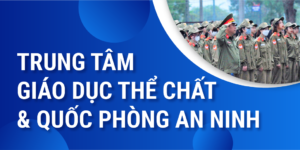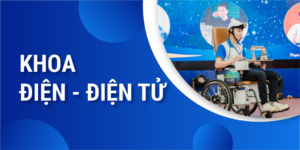- Câu hỏi 25357:
Read the following article and decide if the statement below is TRUE (A), FALSE (B) or NOT GIVEN (C)
Liverpool city council want to clear the city of fat pigeons. They say that that people are feeding the birds, which makes them fat. The pigeons get bigger because their normal diet would consist of seeds and insects, not high-fat junk food they are eating in the city centre.
The council want people to know that everyone who feeds the pigeons is responsible for the streets being so crowded with these birds. They hope to encourage the birds to move away from the city centre and into parks and open spaces.
Ten robotic birds have been brought into the city centre to scare the pigeons away and visitors are asked not to give the pigeons any food. The mechanical birds - known as 'robops' - will sit on the roofs of buildings. They can be moved around to different locations. They look like a peregrine falcon, which is a bird that kills pigeons. They even make noises and flap their wings to scare the pigeons. They hope that the pigeons will go away before the city becomes the European Capital of Culture in two years.
Statement: Pigeons get fat because they eat seeds and insects.
A. TRUE
B. NOT GIVEN
C. FALSE
- Câu hỏi 25827:
Read the following article and decide if the statement below is TRUE (A), FALSE (B) or NOT GIVEN (C)
Shambo, the bull at the centre of a three-month legal fight, has been killed. After a positive test for TB, an order was made for his slaughter, in keeping with the law. However, the multi-faith community where he lived went to court to try to save him as he was a sacred animal to Hindus.A High Court judge said that the order to kill him was unlawful, but the decision was overturned in the Appeal Court. Police had to be called in as worshippers had formed a human shield around the animal to stop him being taken away. Opinion is very divided on the issue- some believe that he was a danger to the national herd and needed to be killed, while others feel that religious beliefs should be respected and the community had offered to provide sufficient measures to ensure that he would not infect any other animals if he contracted the disease as they planned to isolate him. The authorities cut through the security fence and led the bull away. The following morning they announced that he had been given a lethal injection.
The debate on the issue is unlikely to end with the death of Shambo and may widen into a debate about the policy of killing cows that test positive for TB.
Statement: Police went in because there were violent protests.
Top of Form
A. FALSE
B. TRUE
C. NOT GIVEN
- Câu hỏi 25847:
Read the following article and decide if the statement below is TRUE (A), FALSE (B) or NOT GIVEN (C)
Some scientists have predicted that healthy adults and children may one day take drugs to improve their intelligence and intellectual performance. A research group has suggested that such drugs might become as common as coffee or tea within the next couple of decades.
To counter this, students taking exams might have to take drugs tests like athletes. There are already drugs that are known to improve mental performance, like Ritalin, which is given to children with problems concentrating. A drug given to people with trouble sleeping also helps people remember numbers.
These drugs raise serious legal and moral questions, but people already take vitamins to help them remember things better, so it will not be a simple problem to solve. It will probably be very difficult to decide at what point a food supplement becomes an unfair drug in an examination.
Statement: Food supplements are unfair.
A. FALSE
B. TRUE
C. NOT GIVEN
- Câu hỏi 25853:
Read the following article and decide if the statement below is TRUE (A), FALSE (B) or NOT GIVEN (C)
Early morning in California, and Elizabeth Safran, a public relations consultant, is dealing with a huge number of e-mails. Everybody in the small company works from home and relies on e-mails and instant messaging to stay in touch. Elizabeth worries about her work-life balance and thinks that ‘technology makes us more productive, but everyone is working all the time – weekends, evenings. It is too much.’
Five o’clock Friday afternoon in the , Paul Renucci, managing director of a systems integration company, switches off his computer. He now works at home and is off to pick up his children. In the past, it would take him two hours to get home from the office.
Ms Safran and Mr Renucci represent different side of a modern problem: the capacities of the latest communications technologies, such as e-mails, texts, messaging and video conferencing, make it difficult to draw the line between work and leisure and raise important questions about the nature of ‘flexible working’- where employees can work where and when they choose.
There are three issues here. First, does the rise of portable, networked devices such as the Blackberry and Palm Treo really damage an individual’s work and life? Second, what is the effect of these devices on traditional workplace relationships? And third, how do individuals manage them?
A Microsoft survey found that where flexibility had increased, so had productivity and employee morale, together with lowered stress levels and staff turnover.
However, individuals can suffer technology-related stress as work moves into their free time and from the complexity of the gadgets they must use, such as mobile phones where manufacturers try to persuade customers upgrade more frequently.
Statement: Technology can be stressful for individuals.
A. FALSE
B. NOT GIVIEN
C. TRUE
- Câu hỏi 25861:
Read the following article and decide if the statement below is TRUE (A), FALSE (B) or NOT GIVEN (C)
Siem Reap is a small town near the world famous temple of Angkor Wat. The town is charming and worth exploring, with some fine examples of Khmer and French colonial architecture set among the more modern developments. Nowadays, visitors are flocking in, using it as a base for visits to the nearby temples.
From the 9th to the 14th centuries, when Europe was still struggling out of the Dark Ages, the Cambodian Empire of Angkor covered most of present-day Cambodia, Laos, Vietnam, and Thailand. The heart of this empire during the 12th century was the ancient capital of Angkor Thom, near present day Siem Reap, the site of the world’s largest temple complexes, which were rediscovered in 1861.This spectacular city was built over 30 years under the reign of King Suryavarman II (1113-1150). The area covers about 400 square kilometres and is full of the finest examples of Khmer art and architecture. Tourists are always amazed at the scale of the place.
In Angkor Wat you will find more than 100 stone monuments and temple buildings, each of which contains countless statues, sculptures and reliefs that have weathered extremely little over the last 800 years. To see the whole thing can take several days. The most important temples to visit in the area are Angkor Wat, especially at sunrise or sunset; Angkor Thom, the remains of the capital; Ta Prohm, a palace overgrown by jungle; and Bayon.
Visas are required to enter Cambodia. You can obtain one on arrival at Siem Reap International Airport for $20, and 1 passport photo is required per person. You will also need another passport photo for the Angkor Temple Entrance Pass. Please ensure you take comfortable walking shoes, light clothing and plenty of water to drink as it is very hot there. The most commonly accepted currency in Cambodia is the US dollar.
Statement: In the 9th to the 14th centuries, Europe was more advanced than Cambodia.
A. NOT GIVEN
B. TRUE
C. FALSE
- Câu hỏi 25863:
Read the following article and choose the best answer for the following question:
Orbis is an organization which helps blind people everywhere. It has built an eye hospital inside an aeroplane and flown it all over the world with an international medical team. Samantha Graham, a fourteen-year-old schoolgirl from England, went with the plane to Mongolia, Samatha tells the story of Eukhtuul, a young Mongolian girl.
Last year, when Eukhtuul was walking home from school, she was attacked by boys with sticks and her eyes were badly damaged. Dr Duffey, an Orbis doctor, said that without an operation she would never see again, I thought about all the everyday things I do that she couldn’t , things like reading schoolbooks, watching television, seeing friends, and I realized how lucky I am’.
‘The Orbis team agreed to operate on Eukhtuul and I was allowed to watch, together with some Mongolian medical students. I prayed the operation would be successful. The next day I waited nervously with Eukhtuul while Dr Duffey removed her bandages. ‘In six months your sight will be back to normal’, he said. Eukhtuul smiled, her mother cried, and I had to wipe away some tears, too!’
‘Now Eukhtuul wants to study hard to become a doctor. Her whole future has changed, thanks to a simple operation. We should all think more about how much out sight means to us.
Question: What is the writer’s main purpose in writing this text?
A. to explain how sight can be lost.
B. to describe a dangerous trip
C. to report a patient’s cure.
- Câu hỏi 25866:
Read the following article and decide if the statement below is TRUE (A), FALSE (B) or NOT GIVEN (C)
Siem Reap is a small town near the world famous temple of Angkor Wat. The town is charming and worth exploring, with some fine examples of Khmer and French colonial architecture set among the more modern developments. Nowadays, visitors are flocking in, using it as a base for visits to the nearby temples.
From the 9th to the 14th centuries, when Europe was still struggling out of the Dark Ages, the Cambodian Empire of Angkor covered most of present-day Cambodia, Laos, Vietnam, and Thailand. The heart of this empire during the 12th century was the ancient capital of Angkor Thom, near present day Siem Reap, the site of the world’s largest temple complexes, which were rediscovered in 1861.This spectacular city was built over 30 years under the reign of King Suryavarman II (1113-1150). The area covers about 400 square kilometres and is full of the finest examples of Khmer art and architecture. Tourists are always amazed at the scale of the place.
In Angkor Wat you will find more than 100 stone monuments and temple buildings, each of which contains countless statues, sculptures and reliefs that have weathered extremely little over the last 800 years. To see the whole thing can take several days. The most important temples to visit in the area are Angkor Wat, especially at sunrise or sunset; Angkor Thom, the remains of the capital; Ta Prohm, a palace overgrown by jungle; and Bayon.
Visas are required to enter Cambodia. You can obtain one on arrival at Siem Reap International Airport for $20, and 1 passport photo is required per person. You will also need another passport photo for the Angkor Temple Entrance Pass. Please ensure you take comfortable walking shoes, light clothing and plenty of water to drink as it is very hot there. The most commonly accepted currency in Cambodia is the US dollar.
Statement: Angkor Wat was the capital of the Cambodian empire.
A. NOT GIVEN
B. TRUE
C. FALSE
- Câu hỏi 25870:
Read the following article and choose the best answer for the following question:
Orbis is an organization which helps blind people everywhere. It has built an eye hospital inside an aeroplane and flown it all over the world with an international medical team. Samantha Graham, a fourteen-year-old schoolgirl from England, went with the plane to Mongolia, Samatha tells the story of Eukhtuul, a young Mongolian girl.
Last year, when Eukhtuul was walking home from school, she was attacked by boys with sticks and her eyes were badly damaged. Dr Duffey, an Orbis doctor, said that without an operation she would never see again, I thought about all the everyday things I do that she couldn’t , things like reading schoolbooks, watching television, seeing friends, and I realized how lucky I am’.
‘The Orbis team agreed to operate on Eukhtuul and I was allowed to watch, together with some Mongolian medical students. I prayed the operation would be successful. The next day I waited nervously with Eukhtuul while Dr Duffey removed her bandages. ‘In six months your sight will be back to normal’, he said. Eukhtuul smiled, her mother cried, and I had to wipe away some tears, too!’
‘Now Eukhtuul wants to study hard to become a doctor. Her whole future has changed, thanks to a simple operation. We should all think more about how much out sight means to us.
Question: What can a reader learn about in this text?
A. the difficulties for blind travelers.
B. the life of schoolchildrent in Mongolia.
C. the international work of some eye doctors.
- Câu hỏi 676230:
Read the following article and decide if the statement below is TRUE (A), FALSE (B) or NOT GIVEN (C)
Considering their wedding cost over $20,000 and took a year and a half to organize, you would be surprised to hear that Richard and Victoria Hammond now intend to forget it. Well, almost.
"It was a wonderful wedding, an unbelievable day," says Victoria. "But we have so much we want to do together now, we are both looking to the future." Her husband, banker and amateur race driver Richard, agrees. "Both our minds are now fixed firmly on the future. I'll never forget our wedding ceremony or the reception we had at a cliff-side hotel afterwards, but there's so much we want, so many hopes. Our marriage is so much more important than the wedding."
"At the moment, we are still living with my parents," explains Victoria, "so our first wish is to find our own place. We intend to start looking for a new house with all the modern conveniences in the suburbs in the new year." Both Victoria and husband Richard have a lot of siblings. Do they intend to add to the extended Hammond family? "We plan on having two or three children ourselves," Richard tells me. "Victoria is just wonderful with children and I can get 3 years paternity leave from my work, which is just perfect."
The young couple has just returned from a two-week honeymoon spent in an authentic Scottish castle. Both the newly-weds are big travel lovers and Richard hopes this will continue. "I would like to go travelling as much as possible together. Travelling with someone else is such a sharing experience. I think it's sad to experience all the wonderful places in the world and have no-one else there." Victoria also has another great travel ambition that she might have to do alone. "I have always been fascinated by safari and my real wish is to go on safari. Richard has no interest in wildlife though."
And what about the marriage itself? In a world with such a high divorce rate, how do Richard and Victoria hope to avoid all the problems that beset so many other couples? Richard explains thoughtfully that "our ambition is to always talk to each other. If you stop communicating, what chance do you have?" His wife goes along with that completely. "I hope that we can speak about things, but also not expect everything to be easy. I think many people expect the wedding to be the end of getting to know each other. I think it's the start."
Statement: They got married in a dramatic location.
A. NOT GIVEN
B. FALSE
C. TRUE
- Câu hỏi 676233:
Read the following talks about eating out and answer the question below:
1.The last time I went to a restaurant was about 2 months ago. My wife and I wanted to celebrate our wedding anniversary with a good meal so we went to an expensive Italian restaurant in downtown Lisbon. We both had pasta to start and for the main course my wife ordered a steak and I chose fish. For dessert we both ate chocolate cake topped with fresh cream. Delicious!
2. I went to a restaurant yesterday evening with my sister's children. It wasn't very expensive and the menu was very limited. We all had a burger and French fries, and drank cola. It wasn't very good.
3. My boyfriend loves spicy food so this restaurant was perfect. The waiters were all really friendly and polite, and they played traditional sitar music which was very relaxing. The menu offered vegetarian dishes as well as meat dishes served with rice and a sauce - it depended on how hot you wanted it! I chose a mild beef curry but my boyfriend had a lamb 'vindaloo' - he also drank 2 liters of water!!
4. My class at the university went there last weekend. It's a very popular type of restaurant in my country. It generally offers one type of food (a kind of bread with cheese and tomato sauce) which you then choose what ingredients to add on top of it. I asked for olives and mushrooms on mine and my classmates each had something different so we could taste a piece of each person's meal.
Question: In which text did the person talk about the atmosphere of the restaurant?
A. Paragraph 3
B. Paragraph 1
C. Paragraph 4

















